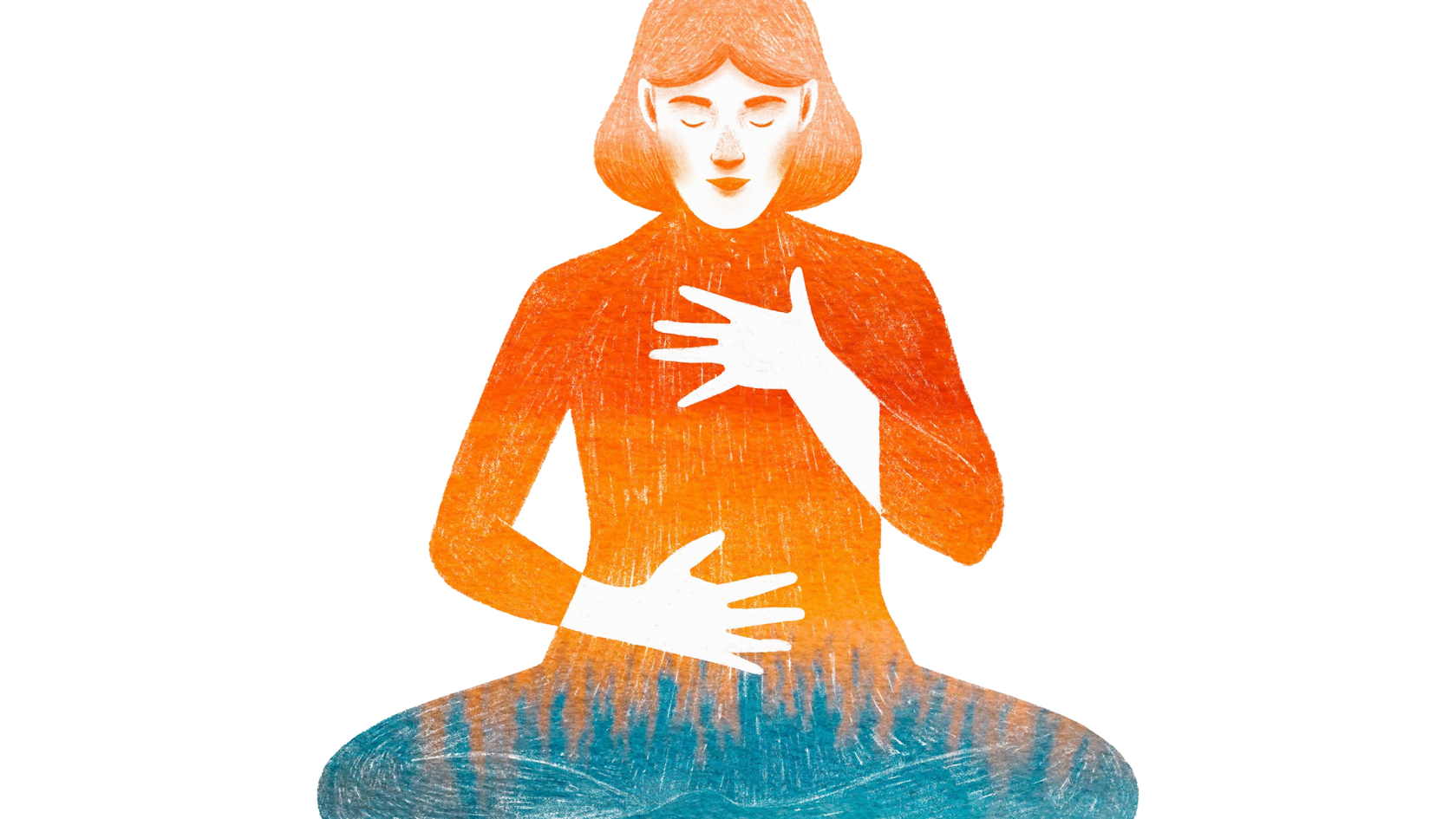
Illustration by Marie Montocchio/Ikon Images
Had a bad experience meditating? You’re not alone.
Altered states of consciousness through yoga, mindfulness more common than thought and mostly beneficial, study finds — though clinicians ill-equipped to help those who struggle
Altered states of consciousness associated with practices such as yoga, mindfulness, meditation, and breath work are far more common than expected, according to new research by a team including investigators from Massachusetts General Hospital.
Although many people surveyed for the study reported positive outcomes from these experiences, for a substantial minority the experiences were negative. The results are published in the journal Mindfulness.
The experiences included derealization (the feeling of being detached from your environment), unitive experiences (a sense of unity or “oneness”), ecstatic thrills, vivid perceptions, changes in perceived size, bodily heat or electricity, out-of-body experiences, and perception of non-physical lights.
45% Of 3,135 adults surveyed in the U.S. and the U.K. reported experiencing non-pharmacologically induced altered states of consciousness at least once
“With more people engaging in mindfulness, meditation, and other contemplative and mind-body practices, we thought that altered states and their effects might be common among the general population,” said senior author Matthew D. Sacchet, the director of the Meditation Research Program at Massachusetts General Hospital and an associate professor of psychiatry at Harvard Medical School. “We conducted a series of international surveys to investigate and indeed found that such experiences were widespread.
“Altered states were most often followed by positive, and sometimes even transformational effects on well-being,” Sacchet added. “With that said, negative effects on well-being were also reported in some cases, with a small subset of individuals reporting substantial suffering.”
For the study, a panel of experts in psychiatry, neuroscience, meditation, and survey design developed a questionnaire on the experience of altered states of consciousness.
Among 3,135 adults in the U.S. and the U.K. who completed the online questionnaire, 45 percent reported experiencing non-pharmacologically induced altered states of consciousness at least once in their lives.
This is far more than expected from the 5 percent (U.S.) to 15 percent (U.K.) of the population estimated to have undertaken mindfulness practice.
Respondents reported a mix of positive and negative well-being following altered states, with 13 percent claiming moderate or greater suffering and 1.1 percent claiming life-threatening suffering. Of those who experienced suffering, 63 percent did not seek help.
63% Of those who had a bad experience did not seek help
“Rather than being extremely unusual and rare, our study found that altered states of consciousness are a common variant of normal human experience,” said Sacchet. “However, we’ve found that those who experience negative outcomes related to these altered states often do not seek help, and that clinicians are poorly prepared to recognize or support these kinds of experiences. This has contributed to what might be considered a public health issue, as a certain proportion of people have difficulty integrating their experiences of altered states into their existing conceptions of self and reality.”
Sacchet noted that additional studies are needed to identify individual characteristics associated with experiencing altered states of consciousness, and with potential suffering associated with these states. He also stressed the importance of applying this research to patient care.
“We should not dismiss meditation and other practices as inherently dangerous, but rather we need to better understand and support meditators to fully realize the potential of these practices,” he said. “Similar to psychotherapy, pharmacology, and other therapeutic tools, it’s important that we learn to best implement and support people when engaging with these powerful practices.”
He added, “Ancient meditation manuals from the wisdom traditions may be useful for classifying and understanding altered states of consciousness. They may provide guidance into how to better manage altered states when they may be difficult. We clearly need more research to further study and understand this possibility.
“Clinical curriculum on altered states of consciousness should be developed to better support clinicians caring for patients experiencing suffering linked to these kinds of experiences.
“Also, those who teach meditation practices should ensure that participants are aware of potential risk,” he said. “Together, these kinds of safeguards will help to ensure that these very promising and powerful practices are taught and experienced safely.”
This research was supported by funding from Massey University and Emergence Benefactors.






